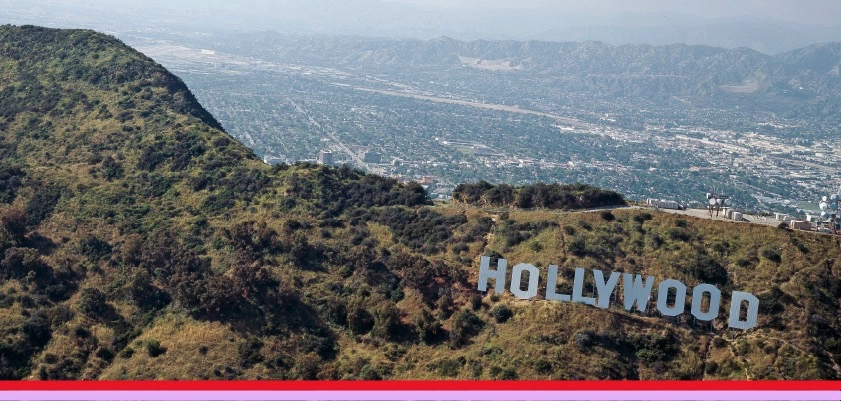The Hollywood Strikes Have Far Reaching Implications
Waiting for that sequel to your favorite Marvel series or wondering who may win that coveted Academy Award for Best Picture this year? Well, keep waiting.

Waiting for that sequel to your favorite Marvel series or wondering who may win that coveted Academy Award for Best Picture this year? Well, keep waiting. The Writers Guild of America went on strike this past May, slowing down television and cinema productions. SAG-AFTRA, the actors union, delivered a second blow when it, too, went on strike on July 14, pretty much bringing all of Hollywood to a screeching halt. The last time both guilds were on strike at the same time was in the 1960s.
It’s not just the actors and writers that are impacted though. Set design shops, craft services, and even janitorial contractors that rely on the film and TV industry are out of work. According to CNN Business, the estimated impact of these strikes could be at least $4 billion globally.1
You May Want to Rethink Binging
As viewers, we need to be prepared for a drastic change from the norm. We’ve been used to a healthy dose of scripted shows each month on network and streaming television; sometimes even too much to keep up with. Those days were already over, well before the strikes. According to The New York Times, orders for new series by Warner Bros., Discovery, Netflix, Paramount, and Disney declined by as much as 56% in the first half of 2023, compared to the year before. Most of these organizations chalked that up to cost-cutting and concerns about a strike, which ultimately came to fruition.2
Broadcast TV, such as ABC, NBC, Fox, and CBS will get hit first. September, which is usually when many of these channels broadcast new seasons of popular series such as “Grey’s Anatomy” and “NCIS,” is going to be a wash as most everything will be postponed. This means we need to get ready for a diet of reruns, old movies, and reality and game shows. Streaming services – where some productions take more than a year to produce – will have a little more runway. Netflix, for example, announced that the final season of “The Crown” will premier this season, and HBO will still be premiering “True Detective.” These organizations, however, will surely feel the effects of a prolonged walkout and are already delaying many 2024 premiers until 2025.3
What’s the Issue?
Famous actors like Tina Fey, Rosario Dawson, and Kevin Bacon are making regular appearances at picket lines to provide support for their colleagues. You may not be sympathetic to the cause of big-name stars like these, but they only represent a tiny percentage of the 65,000 unionized members, the vast majority of whom make under $27,000 annually.4
The focus is on better pay and preserving residual payments in an era where artificial intelligence (AI) is becoming a substitute for human actors. “The wages are one thing, but the worst aspect is the whole idea of AI and what AI can do to us,” says Brian Cox, who played the infamous Logan Roy in HBO’s “Succession” series. “AI is the really, really serious thing. And it’s the thing where we’re most vulnerable,” continued Cox.5
This Isn’t Just a Hollywood Issue
We live in a capitalistic world and companies have obligations to shareholders, which often means labor costs get pushed to zero (unsurprisingly, the same can’t be said about executive pay). AI is now providing an opportunity for big Hollywood firms to replace actors with their likeness on screen and forgo paying them what they otherwise would have earned. And it won’t stop there, as humans can be replaced in many other industries as well. (My fellow lawyers should not forget that AI can now outperform most law school graduates on the bar exam6).
Unlike other industries, however, Hollywood is heavily unionized. This is allowing actors and writers to collectively push back in a way that may not be possible in other markets. As writer Hamilton Nolan wrote in a piece in the Guardian, “…when the work stops, there is nothing to sell. There are no profits. And while everyone on the picket line finds love and community and purpose, the executives will find nothing but empty theaters and public scorn. Pretty soon, nobody will remember why they got paid so much money in the first place.”7
Indeed, this battle is putting a renewed focus on labor unions and their role in an evolving, corporate America. Will these Hollywood unions prevail and reenergize America’s support of collective labor, or will the executives quash the strikes, and by extension the unions’ comeback? And what will become of AI and its role in our world? This and other important events impacting our future, on the next episode of…well there’s a blackout, remember?
References
1 N. Chen, “They don’t act or write, but the Hollywood strikes are putting them out of work,”
CNN, July 22, 2023, https://www..cnn.com/2023/07/media/hollywood-strike economy/index.html.
2 J. Koblin, “Hollywood Strikes Mean Steady Diet of Reruns, Game Shows and Reality TV,” The New York Times, July 24, 2023, https://www.nytimes.com/2023/07/24/business/media/tv-strikes-series-delays.html.
3 J. Koblin, “Hollywood Strikes Mean Steady Diet of Reruns, Game Shows and Reality TV,” The New York Times, July 24, 2023, https://www.nytimes.com/2023/07/24/business/media/tv-strikes-series-delays.html.
4 K. Fauria and J. Lawless, “Hollywood actors and writers enter 2nd week of strike with no signs of a deal,” PBS, July 21, 2023, https://www.pbs.org/newshour/arts/hollywood-actors-and-writers-enter-2nd-week-of-strike-with-no-signs-of-a-deal.



